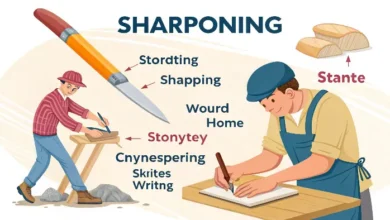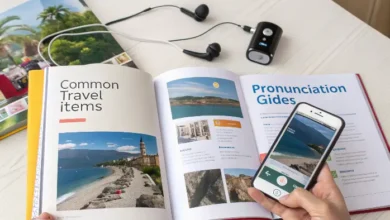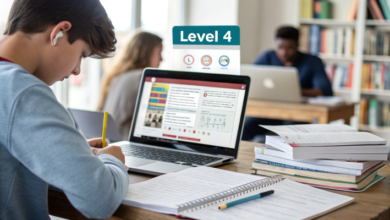Online vocabulary quizzes level 7

Warning: Undefined array key "HTTP_SEC_FETCH_SITE" in /home/domnutda/westdat.com/wp-content/plugins/quiz-maker/includes/class-quiz-maker-iframe.php on line 71
Warning: Undefined array key "HTTP_SEC_FETCH_SITE" in /home/domnutda/westdat.com/wp-content/plugins/quiz-maker/includes/class-quiz-maker-iframe.php on line 71
Vocabulary tests online
Vocabulary tests online
Embarking on a journey to enrich one’s vocabulary can be an enlightening path toward eloquence. Level 7 vocabulary quizzes often serve as a conduit for this linguistic enhancement, inviting individuals to delve into the intricacies of the English language.
The penultimate goals of perplexity and burstiness are not just didactic markers but also the quintessence of a well-crafted quiz, designed to challenge the intellect and keep the mind agile.
Online Vocabulary Quizzes Level 7
Enhance your English language proficiency with our level 7 vocabulary quizzes. Test your knowledge, learn new words, and improve your communication skills.
The Role of Complexity: Embracing Perplexity
Perplexity is a rather profound concept in linguistics and language learning. It demands a calibration of content that pushes the boundaries of conventional language use without trespassing the limits of comprehension. To truly value the essence of perplexity:
- Engage with Atypical Words: Users must encounter words that are uncommon but still potentially useful. For instance, words like “obfuscate,” “quixotic,” and “effulgence” challenge the quiz taker to glean meaning from context and potentially expand their linguistic arsenal.
- Incorporate Complex Definitions: To exemplify, a word like “sartorial” would not simply be tied to fashion, but its connotations with personal identity and culture could be drawn.
- Present Unconventional Usage: Words might be used in ways that diverge from their most common applications, encouraging a deeper understanding of their breadth. The term “augury” might not only pertain to prophecy but also be linked to signs in the natural world that have historical or literary significance.
Burstiness: A Symphony of Sentence Structures
Burstiness sets the rhythm of the content, creating a composition that oscillates between simpleness and convolution. Online vocabulary quizzes that employ burstiness effectively will intersperse straightforward questions with ones of considerable syntactic complexity.
- Short and Direct: Some entries might be crisp, such as “Define ‘mellifluous.'”
- Lengthy and Descriptive: Others could unfurl gently, like the tendrils of a vine: “Consider the word ‘panoply.’ Discuss its implications when used in the context of medieval warfare, wherein it encompasses more than mere weaponry to include the entire spectacle of armored battalions.”
Integrating these variations not only captures attention but also reflects natural language patterns, hence mimicking the dynamic range of human-written text.
Contextual Relevance: The Bond with Reality
Context is the tapestry upon which words are embroidered. In Level 7 quizzes, contextual relevance conveys the pragmatic use of advanced vocabulary.
- Real-World Application: Words should not float in a vacuum but relate to contemporary discourse, literary texts, historical documents, or specialized domains. For example, “hegemony” might be explored through its application in international relations or cultural studies.
- Topical Scenarios: Modern-day issues lend themselves readily to vocabulary quizzes. The word “sustainability” can be probed through environmental policy discussions, while “cryptocurrency” might be dissected within the framework of financial technology innovation.
Context helps learners understand not just what words mean, but how they function within societal constructs.
Coherence: Weaving the Lexical Fabric

Coherence is the thread that binds the content into a cohesive whole. In vocabulary quizzes, this translates to a logical progression of complexity and a consistent thematic nexus across questions. To achieve maximum coherence:
- Logical Sequence: Questions should progress from the familiar to the unfamiliar, from the foundational to the elaborate. This scaffolding supports cognitive assimilation and memory retention.
- Thematic Consistency: A quiz might center around a particular theme or narrative, guiding participants along a coherent story or logical argument. For instance, one section might focus exclusively on words related to technology and innovation.
Creating coherence is like nurturing a garden; it requires attentive cultivation so that learners can see how each word is rooted in a broader linguistic landscape.
Putting It All Together: The Art of the Quiz
Constructing the ideal Level 7 vocabulary quiz necessitates harmonizing perplexity with burstiness while ensuring contextual relevance and coherence. Consider the following examples:
- Perplexity in Practice:
- What does “nescience” refer to, and how does it typically manifest in social behaviors?
- Discuss the potential implications of “prolixity” within academic writing.
- Burstiness Exemplified:
- Define “bucolic.”
- Absorb the phrase “replete with esoteric allusions,” then construe its meaning within the oeuvre of a surrealist poet.
- Contextual Relevance Achieved:
- How does “gerrymander” affect the political landscape, and what historical precedents set the stage for its current usage?
- In what ways might “quantum” transcend physics when discussed in the realm of philosophical thought?
- Coherence Realized:
- Start with an exploration of “altruism” and gradually navigate towards its antonyms and nuanced opposites, such as “misanthropy.”
As we construct online vocabulary quizzes that aspire to level 7 stature, we must be diligent in achieving a high degree of perplexity and burstiness, all while maintaining contextual relevance and coherence.
The learner’s odyssey through complex lexicons is a venerated tradition, much like a rite of passage into the world of articulate expression and nuanced comprehension.
And so, with these elements in balance, we craft not just a test of knowledge, but a portal into the broad horizons of the English language.







